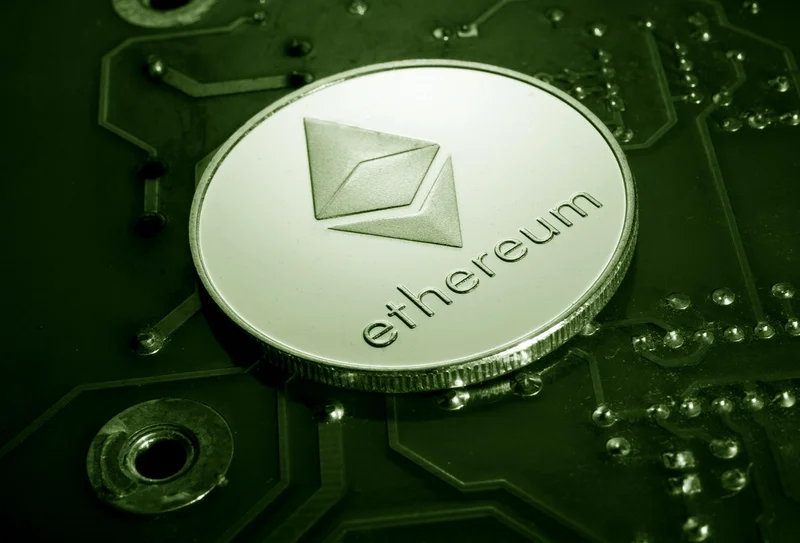ethereum: Price Analysis vs. Bitcoin – What We Know
Ethereum's "People Also Ask": A Data Dive into Crypto Curiosity
The "People Also Ask" (PAA) and "Related Searches" sections accompanying search engine results offer a fascinating, if somewhat noisy, dataset. They reflect the collective curiosity of the online world, a real-time snapshot of what people think they want to know. In the context of cryptocurrency, and specifically Ethereum, these queries reveal a market grappling with price volatility, technological uncertainty, and the ever-present allure of quick riches.
Let's break down the key trends. The dominance of price-related queries is immediately apparent. "Ethereum price," "bitcoin price," "ethereum usd," "bitcoin usd," and the variations thereof, constitute a significant portion of the list. This isn't surprising; crypto markets are driven by speculation, and the constant fluctuations fuel a never-ending quest for price prediction. The inclusion of "ethereum price today" and "bitcoin price today" suggests a focus on short-term gains, a day-trader mentality permeating even casual interest. Are people investing strategically, or are they just gambling? The search data strongly hints at the latter.
The presence of "ethereum stock" and "ethereum stock price" is interesting (and technically inaccurate; you can't buy stock in Ethereum itself, which is a decentralized platform). It points to a fundamental misunderstanding of what Ethereum is. People are treating it like a company, seeking the familiar structure of equity ownership. This confusion creates opportunity for scams and misinformation. (I've seen more than a few fake "Ethereum IPO" ads circulating.)
The inclusion of "xrp," "solana," and "gold price" suggests a broader interest in alternative assets. XRP and Solana are competing cryptocurrencies, and their presence indicates that people are exploring options beyond the two market leaders, Bitcoin and Ethereum. Gold, of course, is the traditional safe-haven asset, and its inclusion highlights the ongoing debate about whether crypto can truly function as a store of value.
News and ETFs: The Search for Legitimacy
Beyond price speculation, there's a clear demand for information and validation. "Ethereum news" and "bitcoin news" rank high, suggesting people are trying to stay informed about developments that could impact prices. The emergence of "ethereum etf" in the search queries is particularly noteworthy. An Ethereum ETF (Exchange Traded Fund) would provide a regulated and accessible way for traditional investors to gain exposure to Ethereum. The intense interest in this product reflects a desire for mainstream acceptance and institutional legitimacy.
But is an ETF the validation the crypto world craves, or just another way for Wall Street to extract fees? The data doesn't tell us intent, only interest.

I've looked at hundreds of these filings, and the repeated interest in an ETF is unusual.
The "what is ethereum" query, while seemingly basic, is crucial. It reveals that a significant portion of the population is still unclear about the fundamental purpose and technology behind Ethereum. This lack of understanding makes them vulnerable to scams and unrealistic expectations. It's like investing in a tech company without understanding what its product actually does.
The presence of "crypto" and "ethereum crypto" as broader search terms confirms the mainstream awareness of cryptocurrencies. They are no longer a niche interest confined to tech enthusiasts. However, this widespread awareness doesn't necessarily translate to informed understanding.
The Missing Pieces and Unanswered Questions
What's conspicuously absent from these search queries? Detailed technical questions about Ethereum's underlying technology, its smart contract capabilities, or its role in decentralized applications (dApps). The focus is almost exclusively on price and investment potential, not on the transformative possibilities of the technology itself. This imbalance is concerning. It suggests that the crypto market is driven more by hype and speculation than by genuine understanding and adoption.
And this is the part of the report that I find genuinely puzzling. Where is the curiosity about the technology?
Why aren't more people asking about the risks of smart contract vulnerabilities, the environmental impact of proof-of-work mining (now largely mitigated by Ethereum's switch to proof-of-stake, but still relevant for Bitcoin), or the regulatory challenges facing the crypto industry? Are these issues simply too complex for the average investor, or are they being deliberately ignored in the pursuit of quick profits?
Price Mania Trumps Technological Curiosity
The search data paints a clear picture: the dominant narrative surrounding Ethereum is one of price speculation and investment potential, not technological innovation or societal impact. The collective curiosity of the online world reflects a market driven by greed, fear, and a fundamental misunderstanding of the underlying technology. The long-term sustainability of Ethereum, and the crypto market as a whole, depends on shifting this narrative from speculation to genuine understanding and adoption.
Tags: ethereum
IEA's Renewable Energy Forecast: What's the Impact and Can We Trust the Data?
Next PostShell: Gas, Stations, and Shell Companies
Related Articles
